The Fairyland Trust, Conservation for the Little People!
Support The Fairyland Appeal
"I am happy to support the Appeal for Fairyland because I have wonderful memories of encountering nature through magical stories."
Charlie Dimmock
The Fairyland Trust needs to raise £50,000 by October, to secure Britain's first ever permanent Fairyland - will you help?
For years, we've been trying to find a permanent site for a Fairyland, where we can help thousands of children to discover nature's magic, all year round. But magical places rarely become available.
Now we have a unique opportunity to deliver this vision.
We've got a chance to convert an existing Norfolk wild flower nursery set in ten acres of riverside woods and gardens near Holt, into Britain's first Fairyland.
Our aim is to enrich and add to the wildlife habitats, build magical-looking workshop shelters where children can make wands, wings and much more, and add a magical bridge across the River Glaven.
But the first step is to raise £50,000 by October to secure the site - It's a big challenge and we can only meet it with your help.
Please help by becoming a Fairyland Founder today. By giving a little each month you will help us not just through this first critical phase but into the next stages when we start essential development projects. Your help will make a lasting difference for a magical place, and for our work to introduce more children to the magic of nature.
When you become a Founder, you will receive a free magic wand, invitations to special Founders Events & have your name inscribed in the Fairyland Founders Book.
To become a Fairyland Founder:
• Print and complete the downloadable Fairyland Founders form here
• Post it to Fairyland Trust, PO Box 14, Wells Next The Sea, Norfolk, NR23 1WB
Or, you can make a one-off donation to the Fairyland Appeal. Post it to Fairyland Trust, PO Box 14, Wells Next The Sea, Norfolk, NR23 1WB, including your name and address, and do let us know if you are a UK taxpayer and would like your donation treated as Gift Aid - which increases its value to us at no cost to yourself because the taxman helps
NOW YOU CAN BE A FAIRY QUEEN!
Become Fairy Queen and Help Fairyland Trust
Do you know anyone who deserves to be Fairy Queen ? If you believe in conservation, help us engage more children with nature and celebrate May, the month of fairies, by becoming a Fairy Queen. Or give it as a present ...
From May 1st the Fairyland Trust is granting the first Fairy Honours for Conservation. Proceeds will help our innovative and fun education work engaging children and families with nature - making magic wands, crowns, wings and recreating meadows.
Send us a cheque for £30 and you can name the day you will be Fairy Queen, tell us what title you'd like, and receive a named certificate with a unique design inspired by the wildflower Fairy Garland, by Sam Symonds. Name your special day - when you reign in full splendour as a Fairy Queen. You can also send us your photo to add to the Fairy Queen gallery at www.fairylandtrust.org.
To become Fairy Queen:
• Print the downloadable form here or just send a cheque for £30 (incl P & p) payable to Fairyland Trust, to PO BOX 14, Fairyland Trust, Wells Next The Sea, NR23 1WB with your name and address.
• Name your special day to reign*. We are taking dates for 2006/2007.
• Name your title eg "Fairy Queen Lucy of Norfolk" and if you would like your photo in the Fairy Queen Gallery, send us your digital photo at fairyhonours@fairylandtrust.org.
If this proves popular we may grant Honours for Kings, Princesses, Trolls ... let us know what you think. fairyhonours@fairylandtrust.org.
*Please contact us by email or call Chris Rose on 01328 711526 to check availability of dates before posting the form, in order to avoid disappointment over clashes of dates. This website cannot be updated daily.
Now Available - Fairyland Trust Colouring Book
Help the Fairyland Trust by buying the brand new Fairyland Trust Colouring Book - features 14 original new designs donated by Norfolk artists from the area in which we have held the Fairy Fairs. Suitable for 4 years old and over. Designs include 'Dreaming of Norfolk' by fairy artist Lucy Clibbon. Swallowtail butterflies, mermaids, frogs, dancing crabs and forest creatures also feature among the subjects.
To order:
Write with a cheque payable to 'Fairyland Trust' to Carolyn Ash, The Post House, Stocks Green, Castle Acre, Kings Lynn, Norfolk, PE32 2AE, UK.
Price: £2 each plus postage and packing 35p for 1, 58p for 2, £1.14 for 3, £1.48 for 5, £2 for 6. For orders above 6 copies contact Carolyn direct by email at clash52@btopenworld.com
©2006 copyright Fairyland trust
FAIRY QUEEN
More About The Fairy Garland and Certificate
The Certificate design (by Sam Symonds, Sam@ToolboxMarketing.co.uk) is inspired by the Fairy Garland of wild flowers.
Throughout ancient British tradition flowers adorned the heads of young girls, women and fairies on their May Day awakening, echoed in Maypole dancing.
"Farm chemicals and development have wiped out many once common flowers from fields and hedgerows" says Fairyland Trust Coordinator Sarah Wise "That's why we now run Fairy Fairs and send out travelling workshops where children can rekindle these traditions and learn about nature, and why we aim to set up new Fairylands, recreating lost wildlife habitats. These Fairy Queens will give real help to conservation, while honouring an almost lost traditions".
If Fairy Queen-making proves popular, the Trust plans to offer other Honours to help conservation in future. People will also be able to buy Honours, and do Maypole Dancing and other activities at the next Fairy Fair, 28/9 May at Narborough Hall, near Swaffham in Norfolk. The flowers of the Fairy Garland traditionally included any flowers, trees and mushrooms with magical fairy associations. Some of these, such as St John's Wort, had particular midsummer associations.
The flowers in the Certificate are those which inspire the design of the spring edition of the Trust's Fairy Crowns.
Red campion "fairies flower" in Isle of Man; said to be a sign of a fairy place where growing with early purple orchid (also indication of ancient woodland)
Dandelion said to contain the spirit of fairies, dandelion clocks transport fairies (you get a wish by blowing a seed away)
Bluebell bad luck to pick them; ring to call fairies to midnight revels and at fairy festivals
Wood sorrel - 'fairy bells' in Wales, sacred to Druids and Celts, inspired Celtic Knotwork, three-part leaves used by St Patrick to symbolise Holy Trinity, fairies said to shelter in the petals, which close up in rain
Blackthorn - traditionally Maypoles were topped by blackthorn, above garlands of hawthorn. Wishing wands of blackthorn were also used to divine the future and make wishes during the May Beltane celebrations.
Herb Robert aqua "pucks needles" (refers to seedpod), and refers to Robin Good fellow (fairy = Puck = Robin Hood?)
Stichtwort not to be gathered if you were to avoid being fairy-led (disappearing into fairyland for a night, maybe not coming back in human time for years)
Hawthorn - traditionally the tree of the Fairy Queen. It is said that fairies and spirits met under the hawthorn, a gateway to their world.
Elderflower a belief originating in Denmark is that a person standing under an elder-bush at twelve o clock on midsummer will see the king of the fairies go by with all his train; elves live in it and should be consulted before any elder is cut
Rowan - one of the most magical of all trees, protecting against enchantment and also favoured by winter thrushes for its orange-red berries. The original Christmas tree.
Plantlife (www.plantlife.org.uk) says: 'Over the last century human activity has forced an incalculable number of species to the verge of extinction. Current estimates put the rate of loss as high as one plant per county every two years …. Vast tracts of Britain's most cherished wild-plant habitats have been destroyed over the last 50 years: 98% of wild-flower meadows, 75% of open heaths, 96% of open peat bogs, and 190,000 miles of hedgerows'.
Other flowers likely to have featured in spring Fairy Garlands include cowslip. Much declined: between the 1980s and 1990s it was lost from 80% of meadows even in the Peak District National Park. (http://peakdistrict.vianw.co.uk/pubs/hmp/hmplosses.pdf)
Cowslip was also known as 'fairycup', as fairies are supposed to like nestling in the drooping bell of cowslip flowers. Under the moon, fairy music emanated from cowslip bells. They are also supposed to reveal fairy gold buried nearby. Shakespeare's Ariel, the fairy in The Tempest was often to be found lying in a cowslip's bell (V.1.88):
'Where the bee sucks, there suck I. In a cowslip's bell I lie. There I couch when owls do cry. On the bat's back I do fly after summer merrily'
And in a Midsummer Night's Dream (II.i.10):
'The cowslips tall her pensioners be; In their gold coats spots you see; Those be rubies, fairy favours, In those freckles live their savours. I must go seek some dewdrops here; And hang a pearl in every cowslip's ear.
©2006 copyright Fairyland trust
http://www.fairylandtrust.org Go to the website for more info!
Tuesday, September 12, 2006
Subscribe to:
Post Comments (Atom)











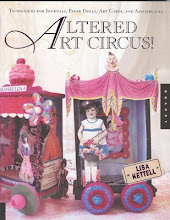



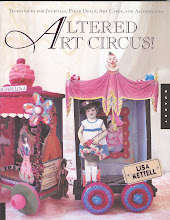




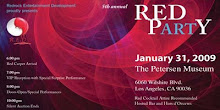

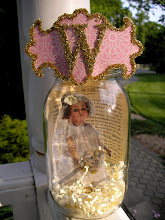


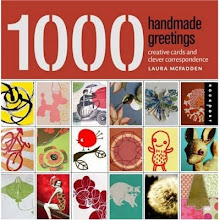





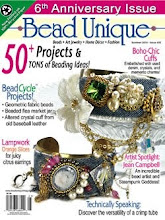
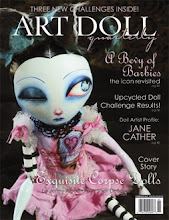
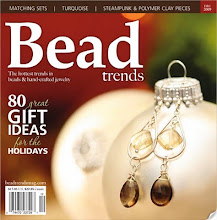
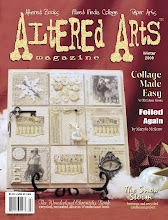

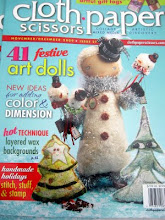


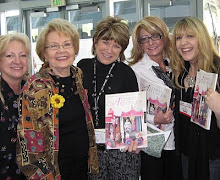















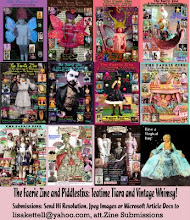








No comments:
Post a Comment